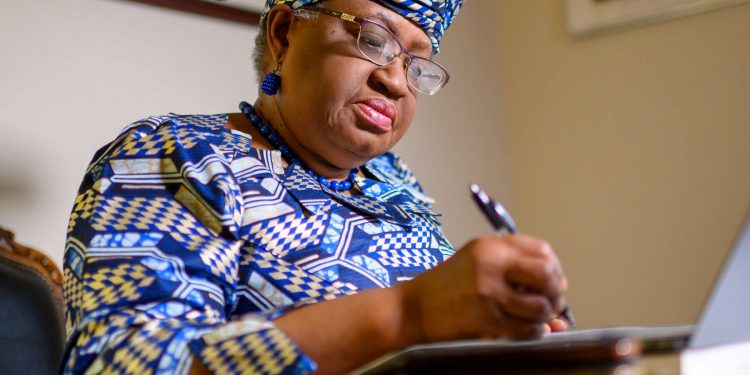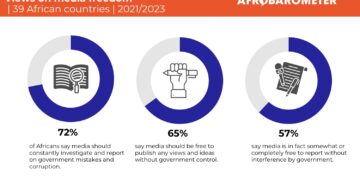Newly appointed Director-General (DG) of the World Trade Organization (WTO) Ngozi Okonjo-Iweala, has said deep-widening reforms will be implemented at the global trade organization upon her assumption to the office of the Director-General.
The reforms she noted in a virtual press conference two hours after being confirmed the new DG of the WTO by the body’s Special General Council, will tackle challenges currently facing the trade organization.
Adding, the global trade body will no longer conduct its activities in the same manner it has in past years.
“Deep widening reforms are needed because the WTO is facing challenges and it cannot be business as usual at the WTO,” she said.
Speaking in the virtual press conference, DG Okonjo-Iweala, highlighted a number priorities for the WTO with the foremost priority being how it can contribute to solving the present situation of the Covid-19 pandemic.
Other priorities she noted include the implementation of her reforms, modernization of the WTO rules and the restoration of trust among WTO members.
“Our priority is modernize our rules, look at what the WTO can contribute to the solve of the present situation of the pandemic among others. So much needs to be done hence the deep and widening reforms, but it won’t be easy because of lack of trust among members built up over time and its not just China and the US or China and the EU but also between developed and developing countries and we need to work through that if we are to achieve the reforms that WTO needs to achieve to be relevant in this modern age,” she stated.
Ms Ngozi Okonjo-Iweala was on Monday, February 15, 2021 confirmed the new Director-General of the World Trade Organization.
Her appointment as the new WTO boss, makes her the first woman and African woman to occupy the coveted position.
Ms Okonjo-Iweala’s first term begins on March 1, 2021.
Notable among her reforms which she intends to implement at the WTO include;
- Debt relief for Africa
Though the former Nigerian Finance Minister appreciated the G-20 for the Debt standstill given to Africa, she explained that the debt standstill, which was shifted to the end of 2020, would not be sufficient. As far as she was concerned, China should be able to extend the standstill for a couple of years to enable the continent look at the debt sustainability issues.
She said, “The organization needs some reforms to make it relevant for times we are in and I have a reputation as a strong reformer. I have actually written a book titled ‘Reforming the Reformable,’ where we undertook certain reforms with a team in Nigeria. I am also a person with strong negotiation skills. I have a career of over 30 years for constantly been involved in negotiating an important agreement between countries.”
- US and China war
On how she intends to mend the fence between the US and China, she did not hesitate to outline what she thought was the problem and how to tackle it. She admitted that the task would be challenging but insisted that she relished it.
She said, “I relish the challenge of being able to build trust and I do hope that being an objective arbiter between US and China and as well as other member countries, I can help to find what the common interests are.
“I believe the Americans know that they have benefitted over time from the WTO and the World Trading System, and other countries have also benefitted. I think what is involved is being a good listener.
“It is important to listen to the concerns of the Americans, China, Europe, Africa, Asia and try to bring them to the table around a common interest. I strongly believe that this world we face today, we need a forum where one can bring common interests together. In spite of all the words we hear, there is a need to bring people together and bring trust around a shared interest.”
- Impacts of COVID-19 on African economies
Okonjo-Iweala pointed out that the virus had really illustrated some on-going trends in the world. According to her, the WTO could make contributions, as African nations looked at the supply chain and wondered what they would do about the health equipment, medical supplies and others.
She said, “I am quite worried and the reason is that African countries felt the economic impact of the pandemic first before they felt the health impact.
“There was a capital flight out of the continent; remittances fell, tourism fell. For the first time in 25 years, the continent’s economies were supposed to contrast by about 2%, so it is a heavy impact.
“The second thing is that the lockdowns and social distances took a toll on the economies. It also has an impact on informal sector workers, who have not been able to earn on a daily basis. It has impacted the lives of household and ordinary people.”









